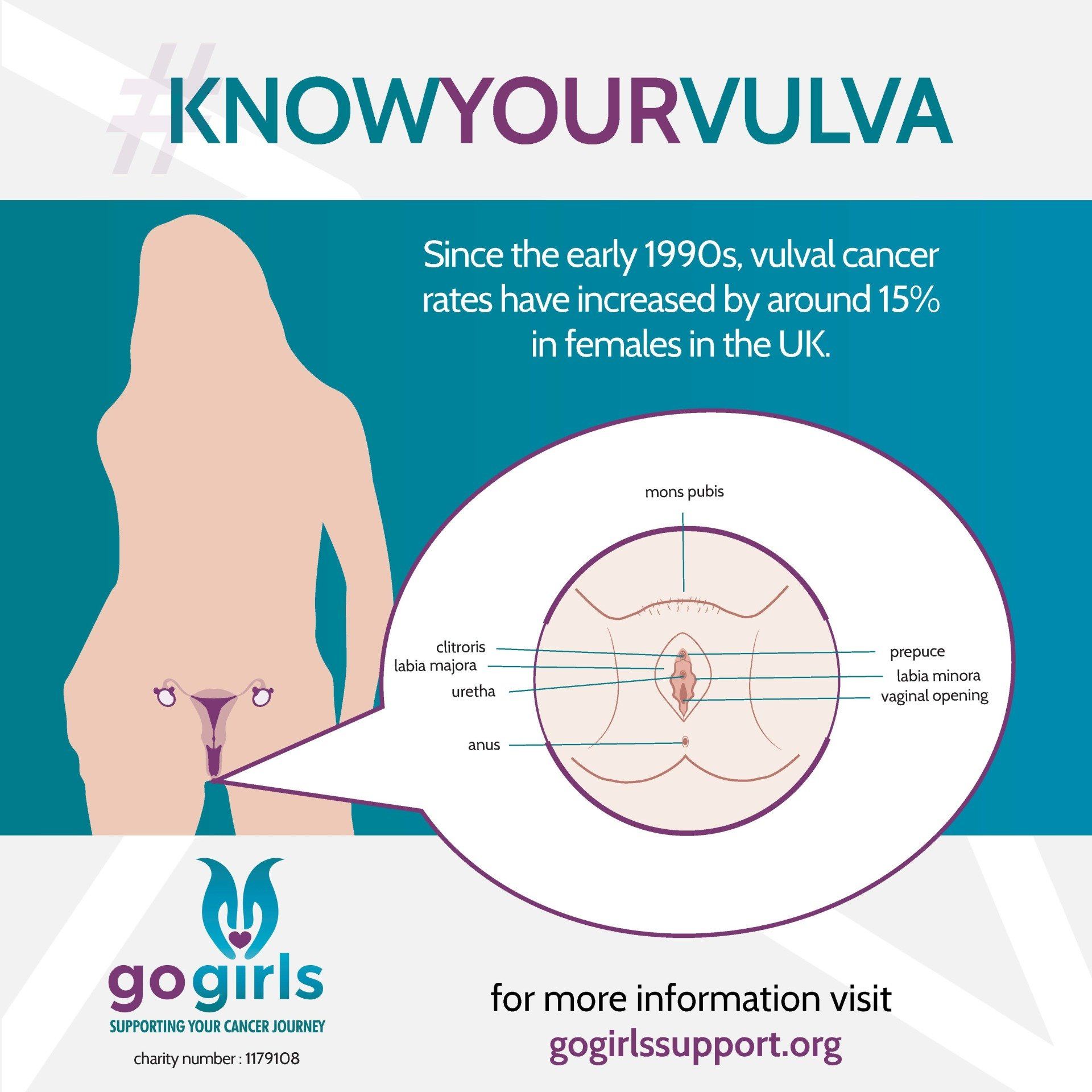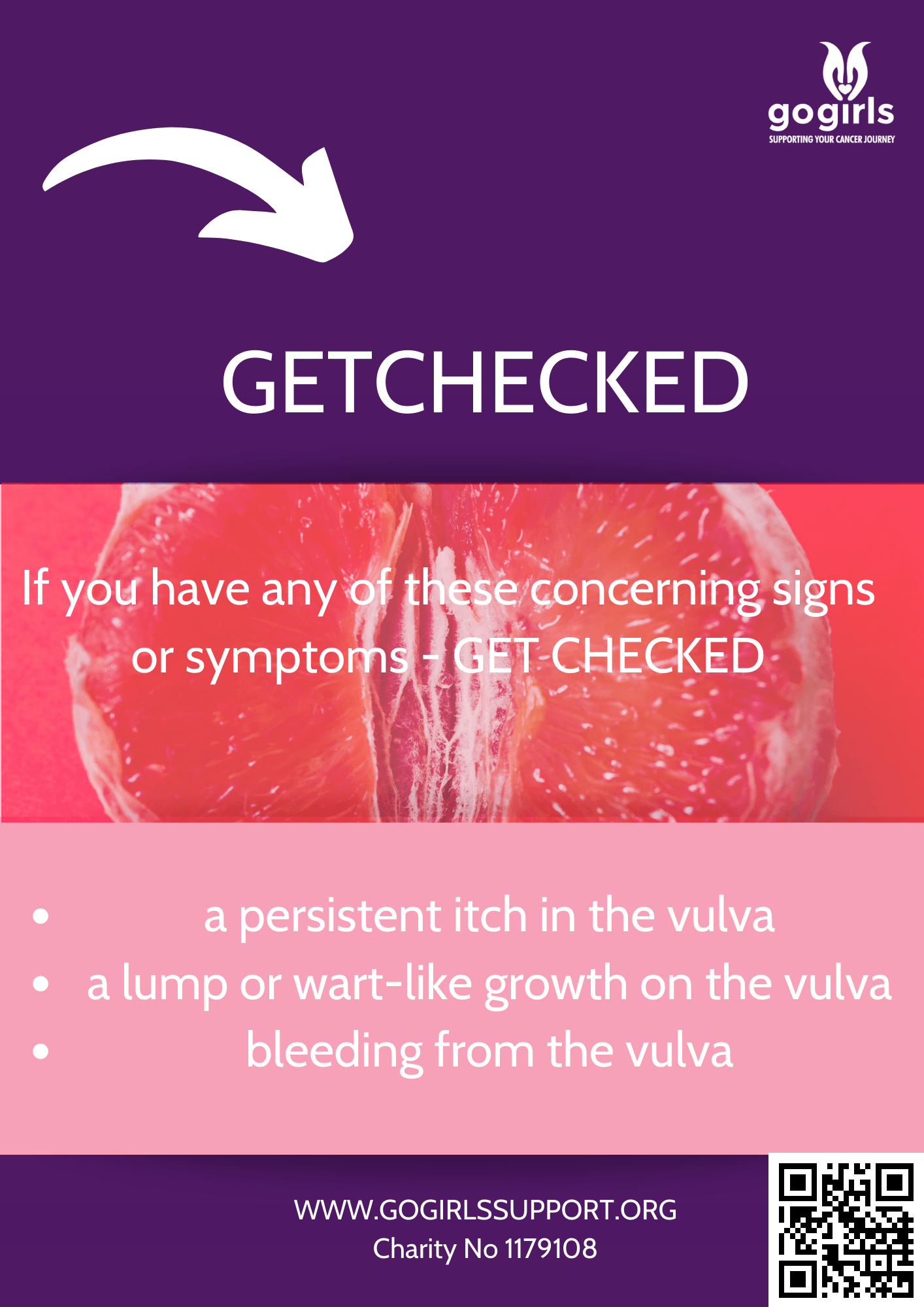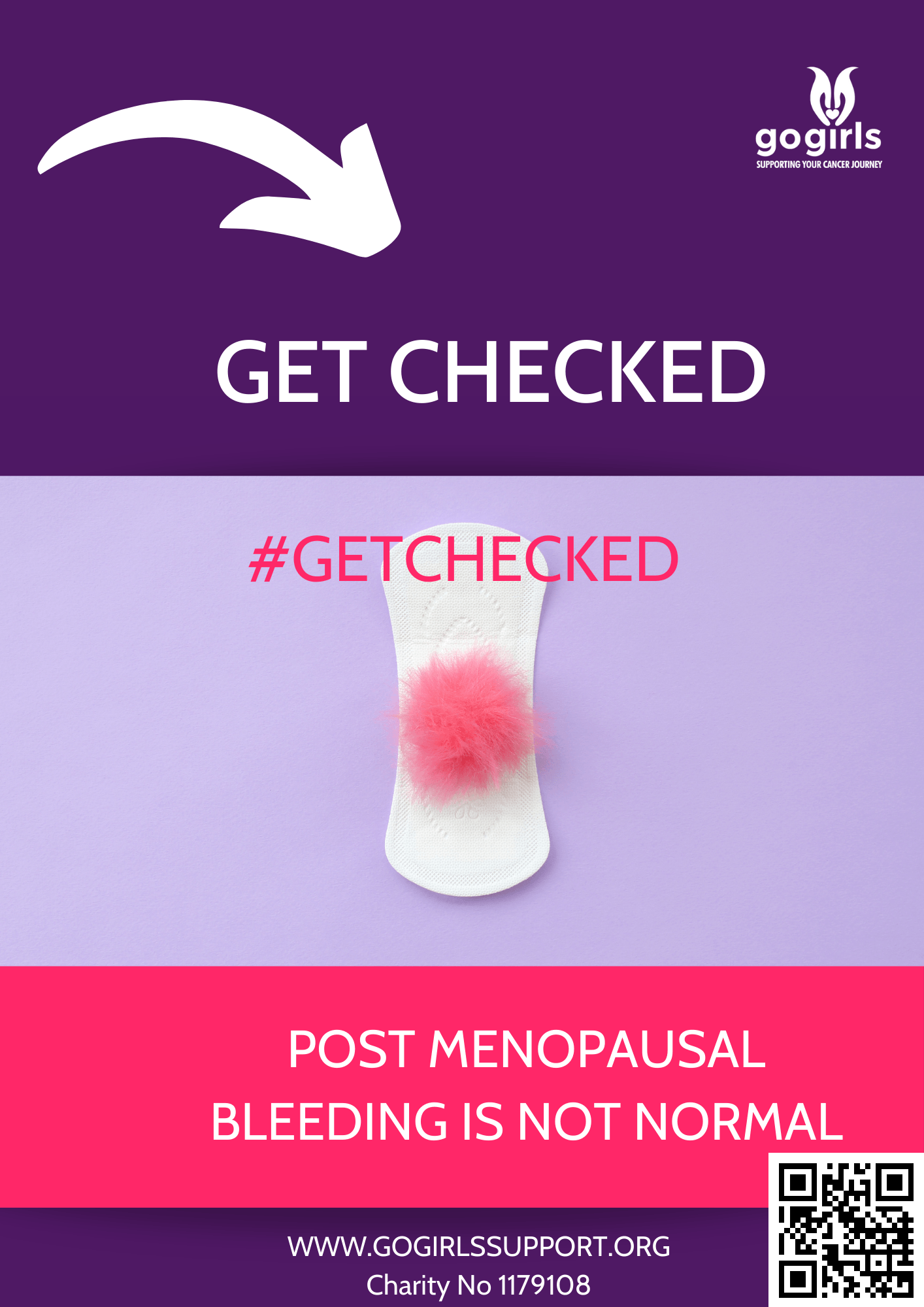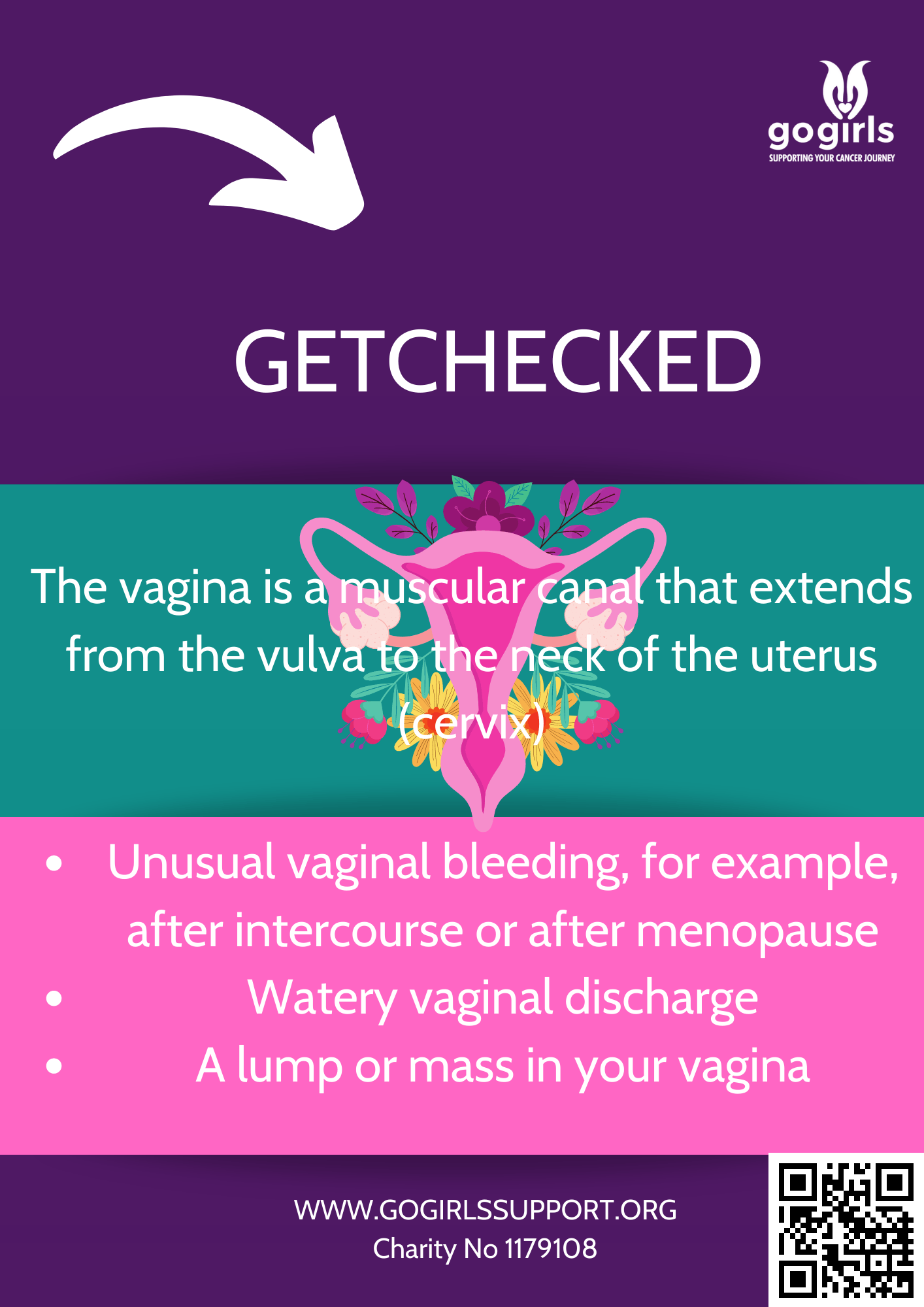Would you recognise the symptoms of vulval cancer?
#knowyourvulva - 5-11 November 2020
Vulval cancer is a rare cancer. It can affect any of the female external sex organs, the vulva. It most often affects the inner edges of the outer lips (labia majora) or the outer lips (labia minora).
Most vulval cancers do not form quickly. Usually, there is a gradual change in the cells. First, normal cells become abnormal. Then these abnormal cells may go on to develop into cancer.
The medical name for these abnormal cells is vulval epithelial neoplasm (VIN), or your doctor may call these pre cancerous changes.
This does not mean you have cancer. It is the stage before a cancer has developed. Some of these cell changes will go away without treatment. But finding these abnormal cells early and having treatment (if necessary) can prevent vulval cancer.
Not all types of vulval cancers have a pre cancerous or VIN stage. It is important to see your GP if you have any symptoms. They can tell you about treatments available or refer you to a specialist.
Source: Cancer Research UK
Vulval Cancer Statistics
In England, as in several other countries worldwide, vulval cancer is one of the rarer cancers in women. It is the fourth most common type of gynaecological cancer following endometrial, ovarian and cervical cancer. In 2010, there were almost 1,000 new cases and over 300 deaths from vulval cancer nationally. Evidence highlights that trends in incidence, mortality and survival differ by age. This briefing looks at these variations.
Overall Trends
Overall, the incidence of vulval cancer (ICD C51) increased by 18% from 1990-92 to 2007-09 (2.1 to 2.5 per 100,000 female population), while mortality rates decreased by 25% from 1990-92 to 2008-10 (0.9 to 0.6 per 100,000) (Figure 1). Since 1990-92, relative survival improved by around 8%, to 85% in 2007-09 for one-year survival and to 70% in 2003-05 for five-year survival (both P<0.001).
Actions should target increasing symptom awareness to detect pre-cancerous/early stage disease, reducing the need for more aggressive treatment. As localised disease is more amenable to treatment, improvements in the early diagnosis of vulval cancers and pre-cancerous conditions may reduce mortality rates and improve survival, particularly in older women. We anticipate that the HPV vaccine will reduce the incidence of vulval cancer over the coming decades.
Source: http://www.ncin.org.uk/publications/data_briefings/vulval_cancer_trends_and_variations_by_age
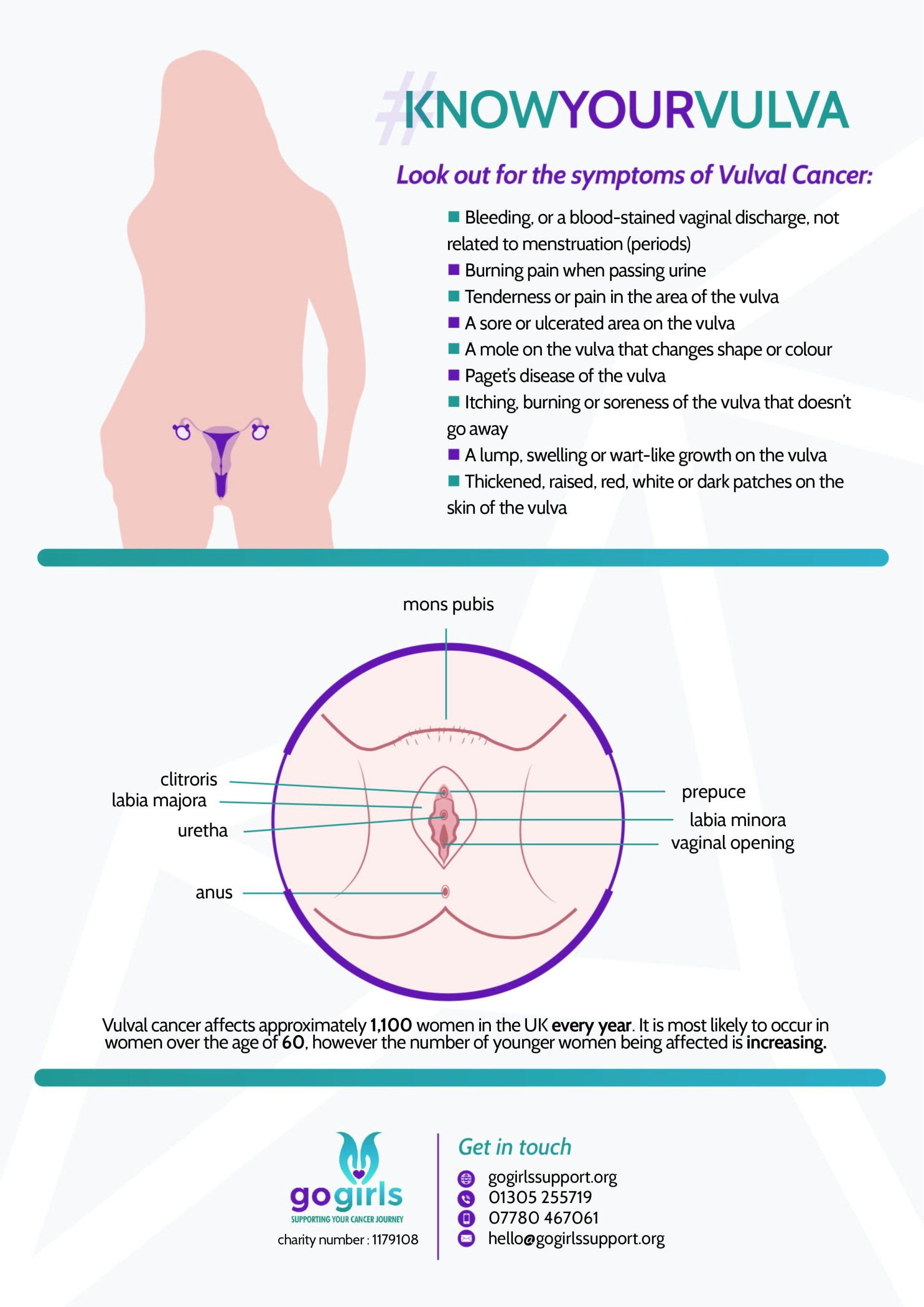
66% of vulval cancers in the UK are caused by HPV infection
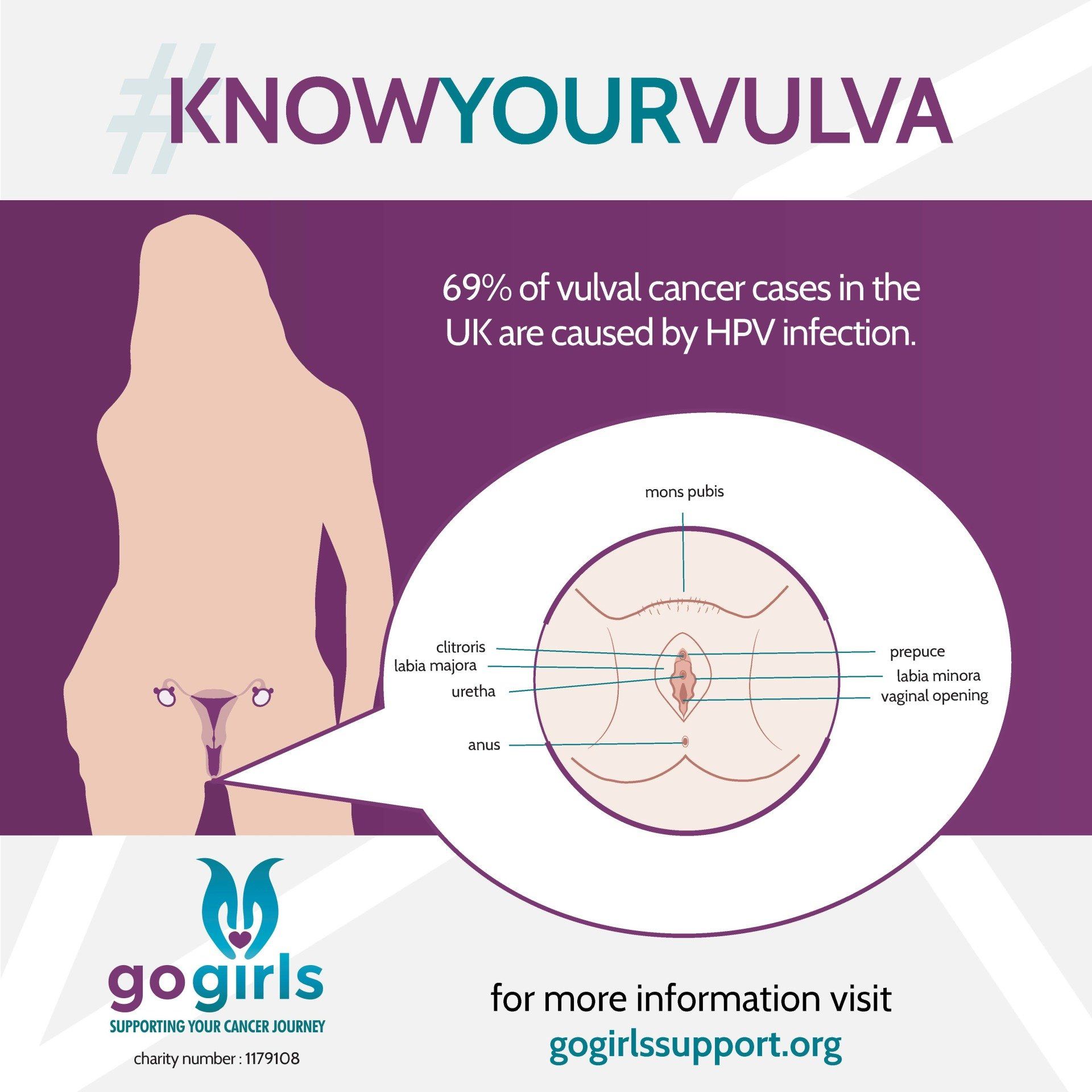
How you can get involved
Each year in the second week in November GO Girls raises awareness of vulval cancer.
So here is how you can get involved and what you can do to help
- Sharing our graphics for social media downloaded from Dropbox
- Share statistics on Vulval Cancer and tag in a friend or two or three.
- Make a
donation to help us continue our work
Social media
Spread the word with the use of our hashtags
#vulvalcancer
#gogirls
#knowyourvulva
Twitter and Instagram
#knowyourvulva I’m telling everyone about #vulvalcancer – do you know the #symptoms and #riskfactors
Twitter @’s to look out for
Links
Share this vulval cancer awareness page https://www.gogirlssupport.org/vulvalcancer







